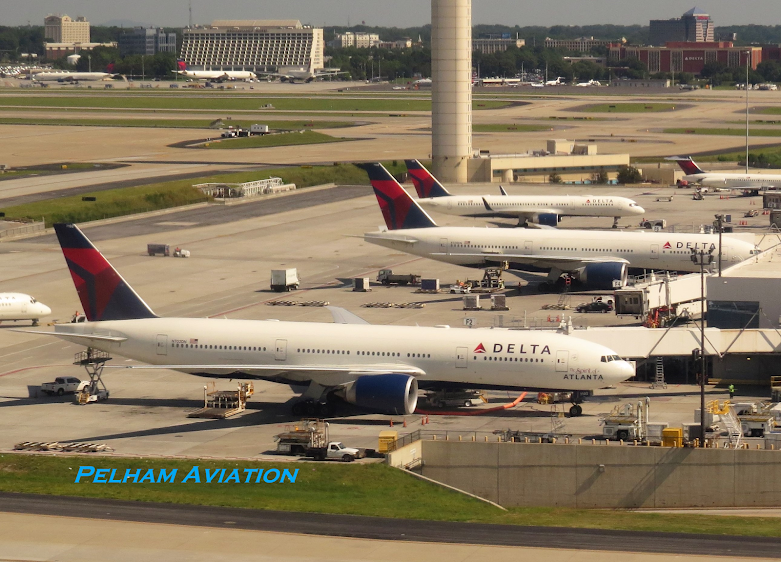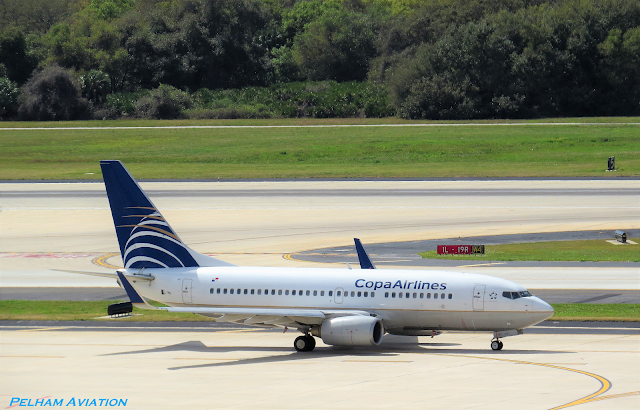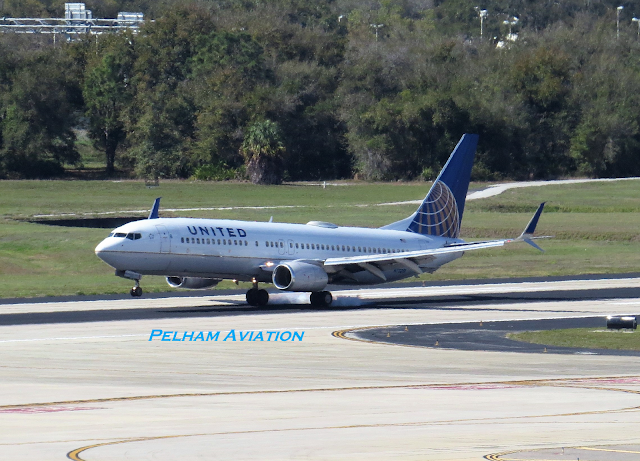COVID-19 Takes Its Toll On Delta Flagship Aircraft
COVID-19 Takes Its Toll On Delta Flagship Aircraft
September 13, 2020
By: Michael Gutta
On May 14, 2020, the CEO of Delta Air Lines Ed
Bastian made a shocking announcement due to the global coronavirus pandemic:
the airline would retire its Boeing 777 fleet within a mere 8 months. The
statement from the airline started by saying, “Delta plans to retire its 18
widebody Boeing 777s by the end of 2020 as a result of the COVID-19 pandemic.
The retirement will accelerate the airline’s strategy to simplify and modernize
its fleet, while continuing to operate newer, more cost-efficient aircraft.”
There have been many aircraft put into storage and several aircraft type
retirements for airlines around the world, but this has been the biggest fleet
announcement for a United States airline. What makes this announcement even
more surprising is that the Delta 777 fleet is only an average of 15 years old,
and the whole fleet has been refitted since 2018 with the latest seats and
cabin amenities. In this article I will expand more on Delta’s 777 fleet, a
comparison to their planned replacement aircraft, and where Delta has flown the
Boeing 777 in the last year.
 |
| Delta B777-200LR “The Spirit of Atlanta” with registration N702DN and B777-200LR “David C Garrett” with registration N708DN together at ATL on 7/24/2019 (Michael Gutta). |
Delta took delivery of their first Boeing 777 aircraft in 1999 and used the aircraft type for ultra-long haul flying. In the latest cabin refresh that Delta performed, the aircraft were equipped with 288 seats total, including 28 Delta One suites, 48 Delta Premium Select seats, 90 Delta Comfort+, and 122 Main Cabin seats. Delta installed all-new cabin lighting and their acclaimed seatback entertainment for all seats. This cabin refresh for all 18 aircraft just recently completed at the end of 2019 and undoubtably cost millions of dollars.
Delta eventually took 2 variants of the aircraft: Eight 777-200ER powered by Rolls-Royce Trent 800 engines delivered from 1999 to 2002 and ten 777-200LR powered by GE90 engines delivered from 2008 to 2010. For a fleet type of only 18, it is even further divided by variant and engine selection. While the Boeing 777 has proven to be especially reliable for many airlines, Delta had to weigh the benefits of a superb but aging aircraft with the hassle of performing maintenance and training on two small sub-fleets plus the inefficiency of a nearly 30 year old design.
While the retirement announcement itself was
surprising, the successor aircraft for Delta was not. Delta has already taken
delivery of 13 Airbus A350-900, with 22 more aircraft on order. The A350
aircraft is also an ultra-long haul which Delta has configured to carry 306
passengers. According to Delta, the A350 burns 21% less fuel per seat than the
Boeing 777 they are replacing. The A350 is a much newer aircraft and is very
comfortable and quiet for passengers. Perhaps the only shortfall of this
replacement plan is a slightly shorter range. This reduction in range poses a
problem for the 2 longest routes that Delta flies: Johannesburg-Atlanta and Los
Angeles to Sydney. Delta has addressed these concerns publicly by admitting
that the JNB-ATL route will have to be flown with a refueling stop (likely in
Cape Town). At least for right now, these routes are suspended due to COVID-19
so Delta has additional planning time. Additionally, Airbus has marketed and
sold an “ultra-long range” variant of the A350 dubbed the A350-900ULR that
Delta could take in some of the remaining orders.
In 2019, the last full calendar year before COVID-19 ruined aviation travel, the Delta fleet of 777 and A350 flew a combined 13,000 departures. These 2 fleet types carried 3.37 million passengers on an available 3.92 million seats for an average load factor of 86%. These aircraft also carried over 200 million pounds of belly cargo (freight and mail). In 2019 these aircraft operated from somewhat distinct bases, but obviously had lots of overlap in Atlanta, Delta’s largest hub city. The top 4 cities for Boeing 777 departures were Atlanta comfortably in the lead, followed by a close pack of Los Angeles, Paris, and Minneapolis. The Airbus A350 also had a standout leading city for departures: Detroit. Detroit was followed by Seoul, Tokyo-Narita, and Shanghai. Obviously by the end of 2020 the Delta route map will look significantly differently due to the COVID pandemic, but the A350 will also have to assume all of the ultra-long haul routes. As of this writing, no exact retirement date or flight of the 777 has been set, but several have already entered storage, several are being flown on cargo-only flights, and several have entered limited use as sports charters. With the -200LR aircraft being a young 10-12 years old, these may live on with another carrier or perhaps be converted to cargo aircraft. The Boeing 777 has been an excellent aircraft for the Delta Air Lines fleet, and it is a shame that it’s being retired so soon.
Let me know your thoughts on this blog post and
potential future topics involving Delta Air Lines, the Boeing 777, the Airbus
A350, or anything aviation related.
Data compiled for the report and figures above
came from the USDOT Bureau of Transportation Statistics T100 Tables. A few
other links to news stories are also shown below:
- https://news.delta.com/delta-emphasizes-customer-comfort-first-refreshed-777-200er
- https://news.delta.com/deltas-777-aircraft-retire-end-2020-simplifying-widebody-fleet-amid-covid-19
- https://news.delta.com/ceo-employee-memo-protecting-our-future





Comments
Post a Comment